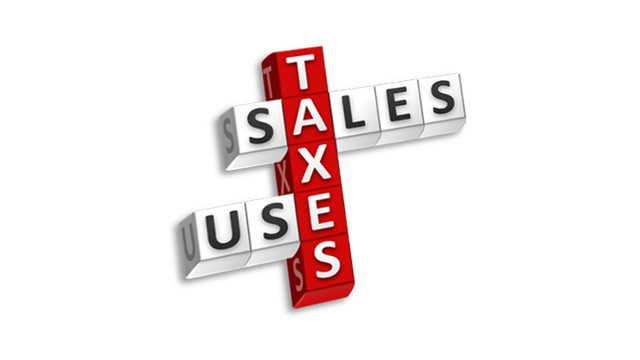From a tax revenue perspective, many states fared well during the pandemic. Now, however, with supply-side pressure and inflation concerns, states are anticipating a significant reduction in sales tax revenue.
States Get Aggressive
Sales and Use (sales) tax audits are an easy way for states to counter lost revenue. New York (which had a revenue shortfall during the pandemic), California and Ohio are already increasing the number of sales tax audits. And these states are aggressive.
For example, in a decision rendered late last year, In re LendingTree, Inc. (N.Y. Div. of Tax App. ALJ Unit, DTA No. 829714, Dec. 9, 2021), at audit, the New York Department of Taxation and Finance (the Department) determined that the petitioner owed over $3.7 million including tax, interest and penalties. The Department asserted that LendingTree was selling taxable information services. On appeal, an administrative law judge (ALJ) ruled that the LendingTree’s online loan marketplace service was not a taxable information service, but a service matching a borrower and a lender leading to a loan. Simply stated, it was a nontaxable service.
Why did the Department pursue the matter? Was it just being aggressive? In two other recent New York sales tax ALJ decisions related to information services, the Department also lost. [See, In re Lender Consulting Servs., Inc. (N.Y. Div. of Tax App. DTA No. 829198, Dec. 2, 2021 and In re IT Works Marketing, Inc., N. Y. Div. of Tax App., ALJ Unit, DTA No. 829134, December 30, 2021.]
California’s decision to send letters to Amazon sellers indicating that they may owe years of uncollected sales taxes and may face audits unless they come forward is another example of how states are aggressively pursuing tax collection.
Errors, Errors, Errors
States are successful at sales tax audits because businesses make mistakes in calculating sales tax using incorrect rates. As many as 500 rate changes across the U.S. take place each year.
In addition, the Wayfair decision and its aftermath means that businesses must now collect sales tax in multiple states where no previous obligations existed. For some, this has created an overwhelming sales tax compliance burden. Another error-ridden area for taxpayers involves obtaining and keeping track of exemption certificates.
Areas of Audit on the Rise
As the volume of state sales tax audits increases, the following are particularly hot areas:
- Information Services
- Software
- Office buildouts
- Credit card purchases with no invoice backup
- In-state sales of product through marketplace facilitators
- Remote seller sales tax nexus
- Sales tax exemptions (missing, incomplete, improper and overuse)
How To Mitigate Sales Tax Exposure
How can your business reduce its sales tax exposure? Here are some recommendations.
Before the Audit:
- Determine the states where your business has exposure. A nexus study is essential.
- Consider available state tax voluntary disclosure programs in states where nexus exists but returns have not been filed. These programs allow taxpayers to come forward on a no-name basis and eliminate some prior year tax exposure and penalties.
- Evaluate the taxability of the products or services that your business sells, particularly if they relate to complex sales tax areas. Prepare a taxability matrix in the states in which you provide products or services.
- Compare the gross sales reported on your sales tax returns filed to the gross revenue reported on your federal income tax returns. Be prepared to explain any discrepancies. Further, compare sales reported on the sales tax returns to sales reported on the general ledger to determine if there are any discrepancies.
- Retain and have readily available all purchase invoices. If you use company credit cards to routinely purchase expense items, retain invoices for purchases made via the credit cards.
- Review your business’s resale and exemption certificate retention situation. Obtain missing certificates and verify that those that have been obtained are completed, dated, signed and valid. If this is not the case, contact the resale or exempt customers and request replacement certificates. In addition, establish a policy to review these certificates on a continuous basis even when the business is not under audit.
Upon Audit:
- Do not go it alone. The experience and knowledge of a seasoned state tax professional is invaluable. Negotiate the selection of the test period with the auditor, especially if your business has made improvements to its use tax processes or document retention. In those cases, request that the auditor review more recent periods. Remember that an error rate derived from the test period will be extrapolated across the full audit period.
- Where an auditor finds that use tax was not paid on a large one-time purchase and includes this transaction as taxable in the sample period, request that the use tax be assessed on this large unique transaction separately from the rest of the sample. This will potentially reduce the overall extrapolated sales/use tax liability.
- If tax and penalties are assessed, request that penalties be abated. Most states require that the taxpayer request penalty abatement in writing and show reasonable cause for underpaying the sales tax.
======
Sandy Weinberg is a principal at PKF O’Connor Davies LLP, where Jill Cantor and Nick Rochedieu are senior managers.
Thanks for reading CPA Practice Advisor!
Subscribe Already registered? Log In
Need more information? Read the FAQs
Tags: Sales Tax




